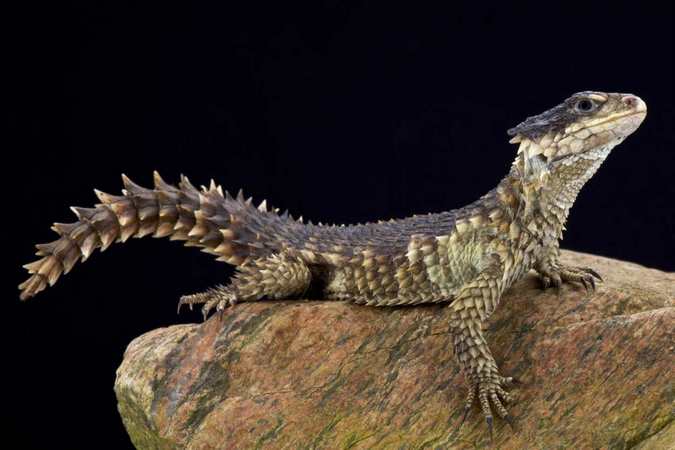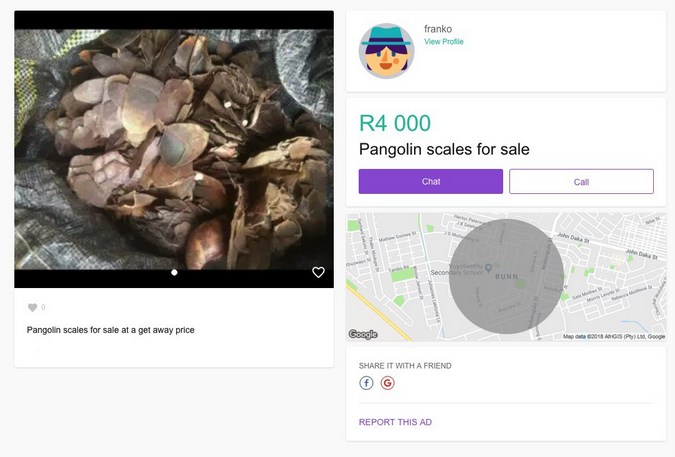
Sourced from third-party site: Oxpeckers – Center for Investigative Environmental Journalism, written by Roxanne Joseph
A casual search of some of South Africa’s biggest online marketplaces shows just how easily endangered wildlife species are reduced to their parts – and how simple it is to sell them online while retaining anonymity. It will take far more than just a quick search to track down all the crypto-traffickers.
South African wildlife is already facing enormous pressures: habitat destruction, human-wildlife conflict, climate change and global trade. Increased access to the Internet for wildlife trafficking is yet another concern to add to the list.
Over a period of approximately four weeks, from mid-April to mid-May 2018, we conducted a small-scale investigation of three social media networks – Facebook, Instagram and Twitter – and half a dozen online marketplaces – eBay, Gumtree, OLX, Public Ads, Free Classifieds and Bidorbuy.
We focused on the impact that increased access to the Internet has on pangolins, leopards, rhinos and sungazer lizards, a family of lizards endemic to sub-Saharan Africa. Monitoring advertisements using keywords like “scales”, “skin”, “rhino horn” and “dragons”, we found 14 advertisements for animal parts – most for pangolin scales and rhino horns.

Only three of the advertisers responded when asked whether they had the necessary permits, either stopped responding altogether (and subsequently blocked the email address we used), or ignored the question entirely, instead responding with images and questions about where we were located.
It is not possible to be 100% certain if any of the products identified were what they claimed to be, or if they were in breach of the law. Further examination by authorities would be required to assess the legality of the sales, any documentation provided and to obtain information on whether the animal was captive-bred.
This is almost impossible to do if the person assessing the product cannot see it in person, and – as experienced numerous times over this time period – often there is no mention or evidence of the necessary documentation, and the product can easily be disguised as something else to evade detection.
Continue to the full investigation on Oxpecker’s website here
To comment on this story: Login (or sign up) to our app here - it's a troll-free safe place 🙂.![]()






